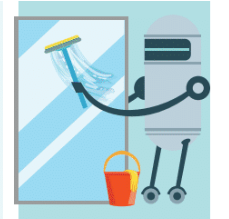ARTIFICIAL INTELLIGENCE IN OUR FUTURE LIVES
Artificial intelligence (AI) has been changing our lives for decades, but AI has never felt more pervasive than now. It seems as though not a week passes without yet another AI system overcoming an unprece - dented hurdle or outperforming humans. However, how the future of AI will pan out for humans remains to be seen. AI could either make all our dreams come true or destroy society and the world as we know it. To get a realistic handle on what that future might look like, we spoke to some artificial intelligence researchers roboticists, and computer scientists about the single most profound impact artificial intelligence could bring.
Sabine Hauert says it will open up new worlds to explore: I really think that robotics is going to improve the way we work, the way we live, and the way we explore new frontiers - especially regarding any future expeditions of our oceans and outer space. I think this will be done incrementally , because it's a hard thing to do instantaneously. I think it's going to also be integrated in the sense that you might have a robot car, but you're not going to think of it as AI or a robot; on the contrary, you're just going to think of it as a car. A lot of these things that we'll be introducing will be seen as helpful technologies, just like your cell phone or car GPS system. However, l don’t believe we will see lots of robots entering our work or entering our homes. They'll just be seen as smarter tech.
Toby Walsh says these impacts will completely revolutionize how we live and work: I think we're going to see similar profound changes in the nature of work; as much as that work can be automated even further by computers. It's hard to think of a job that a computer ultimately won't be able to do as well as - if not better than - we can do. That's going to require profound changes with - in society. For example, are we going to work a shorter working week? How are we going to distribute the wealth that this generates? This is a challenge not for scientists but for society to address. How are we going to work through these changes? (Reading text adapted from Business Insider)

